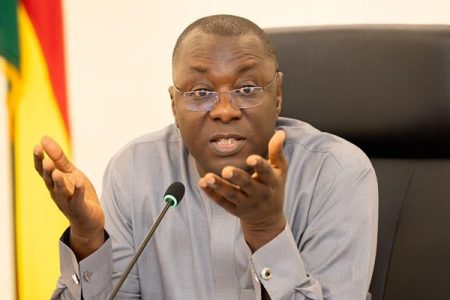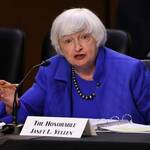Ghana’s debt servicing between 2010 and 2022 amounted to GH¢189 billion, covering a 12-year period.
The annual breakdown highlights a steady rise in debt obligations: in 2010, GH¢1.44 billion was spent, increasing to GH¢45.69 billion by 2022.
The progression includes GH¢1.61 billion in 2011, GH¢2.44 billion in 2012, GH¢4.4 billion in 2013, GH¢7.08 billion in 2014, GH¢9.08 billion in 2015, and GH¢10.77 billion in 2016.
From 2017 onward, debt servicing climbed further, with GH¢13.57 billion in 2017, GH¢15.82 billion in 2018, GH¢19.77 billion in 2019, GH¢24.60 billion in 2020, and GH¢33.52 billion in 2021 before reaching GH¢45.69 billion in 2022.
Debt burden strains government finances
The 2024 United Nations report on Unpacking Africa’s Debt revealed that Ghana spent 42% of its revenue on debt servicing between 2017 and 2022.
This high proportion of revenue allocated to debt repayments significantly constrained government spending on critical public services such as healthcare, education, and infrastructure development.
Debt payment suspension and restructuring
To address its financial challenges, the government suspended debt payments in December 2022 as part of a broader debt restructuring strategy.
This suspension included a halt in coupon payments to bondholders while restructuring terms were negotiated.
Resumption of Eurobond payments
In October 2024, the government resumed payments on its Eurobond debts after successfully concluding its debt exchange programme with bondholders.
A total of $520 million has been paid to Eurobond holders, including a $120 million consent fee offered as an incentive for bondholders to accept the new terms. This fee provided $10 per $1,000 in principal to exiting bondholders.
Additionally, Ghana disbursed $320 million in coupon payments to Eurobond investors, which had been frozen since the debt service suspension.
Under the restructured agreement, regular coupon payments will resume in January 2025, with the next scheduled payment due in July 2025.
Domestic debt payments record
Ghana has demonstrated its commitment to domestic bondholders under the Domestic Debt Exchange Programme (DDEP). In February 2024, the government fully settled its first coupon payment of GH¢2.3 billion (GH¢2,369,667,190.18).
Later that month, GH¢5.8 billion was disbursed to domestic bondholders, marking the largest single-day coupon payment in Ghana’s history. In August 2024, the government made its third coupon payment, amounting to GH¢6.1 billion.
Ghana among most debt-distressed nations
The UN report also identified Ghana as one of the world’s 10 most debt-distressed nations.
It attributed this classification to the steep rise in debt servicing costs, which has severely limited the government’s ability to invest in public services and economic development.
Moving forward
With debt servicing obligations set to resume fully in 2025, the government faces the challenge of balancing its financial commitments with the pressing need to fund essential public services.
The hope remains that these restructuring efforts will lead to a more sustainable fiscal path for Ghana.
- Monday, May 12, 2025 Newspaper Headlines - 12 May 2025
- With honour culture, Mahama wouldn’t need appointee Code - 12 May 2025
- Dollar role under pressure from portfolio rebalancing - 11 May 2025

